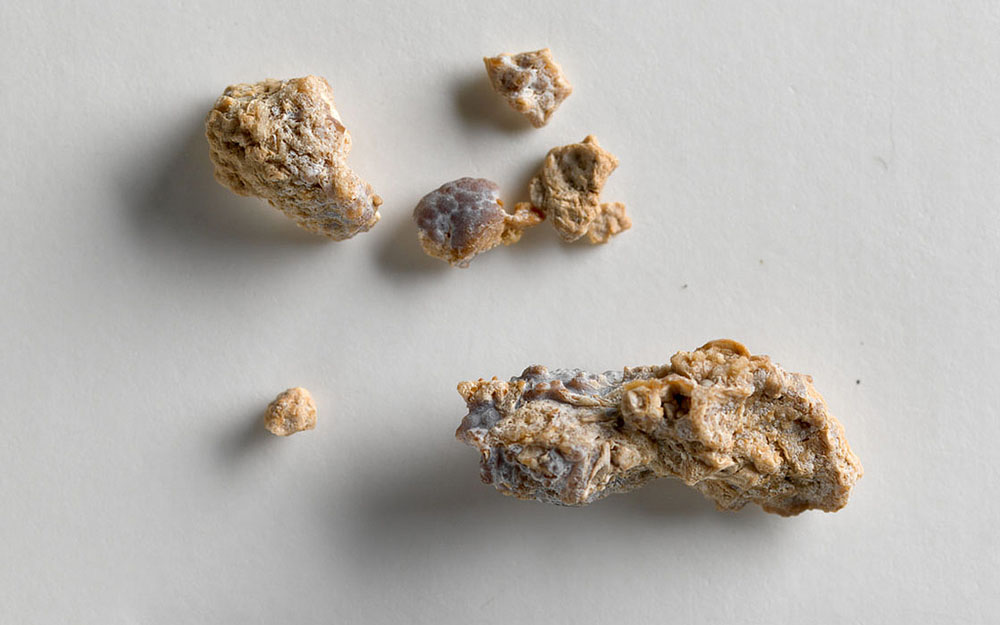
Kidney Stones
Dr. Kadile, My dad has had kidney stones, does that mean I will get them?
Will I get kidney stones if I don’t drink enough water?
Kidney stones (renal lithiasis) are small masses that can form in the kidney. Depending on the size of the stones, they will typically leave the body in the urine stream. Symptoms can range from mild lower back pain to severe pain, nausea, vomiting, bloody and painful urination. Diagnosis is based on a patient’s clinical history, physical exam, urine analysis and imaging studies. Initial treatment may consist of pain medication and possibly other oral medications that will allow one to pass the stone. If unable to pass the stone, procedures such as shock wave therapy or surgery may be needed.
Kidney stones can be hereditary. An individual may have a genetic predisposition to form stones. Other risk factors include; diets high in protein, sodium, or oxalate rich foods (dark green vegetables), obesity, certain medications, and history of frequent urinary tract infections.
Dehydration is the most common cause of kidney stones, thus another very important reason to drink enough water. Thirst is a poor indicator of hydration status. A good way to monitor if you are well hydrated is by the color of your urine. Drink enough water to keep your urine clear to light yellow.
Gallstones
A patient of mine had developed severe indigestion and bloating last week. I initially thought he may have had a mild case of food poisoning but the symptoms persisted for a week until he had sudden, sharp and very painful abdominal pain. I got him a CT scan and it turns out he had gallstones. He needed antibiotics to treat the infection in his gallbladder and surgery to remove the gallbladder with the gallstones.
So what are gallstones and how does one get them?
Gallstones are hardened forms of digestive fluid in your gallbladder. The gallbladder is a small pear shaped organ located on the right side of your abdomen just below the liver.
Most gallstones are formed from cholesterol. Risk factors for developing gallstones are:
– being female
– age greater than 60
– obesity
– poor diet, high in fat, high in cholesterol, low in fiber
– family history
– diabetes
Gallstones can vary in size and may cause no symptoms, but if they get lodged in the duct leading out of the gallbladder, it may cause right sided upper abdominal discomfort to severe pain. Larger gallstones usually do not cause a problem because they are too large to fit into the gallbladder duct. It is the smaller stones that usually cause a problem. If the stone does not get dislodged and gets “stuck”, a severe infection can develop called cholecystitis or possibly an infection of the pancreas (pancreatitis).
Treatment for symptomatic gallstones is usually surgery. Small gallstones may pass through the duct and into your small intestine, so it is possible to “pass” a gallstone with a bowel movement, but generally these stones don’t cause symptoms.
Dietary modifications to help prevent gallstones:
– Limit refined sugars
– Vegetarian diet, particularly high in vegetable protein
– High fiber diet
– Caffeinated coffee may protect against the development of gallstones
– Supplementation with vitamin C










































